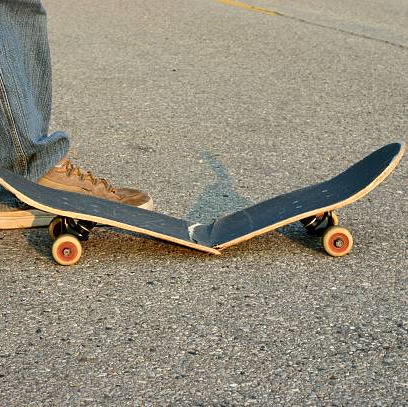The History of Skateboarding: from the Streets to the Olympics
Skateboarding has come a long way since its humble beginnings in the 1950s. What started as a simple pastime for surfers looking to ride waves on dry land has evolved into a globally recognized sport, with professional skateboarders competing in major competitions around the world. In fact, skateboarding is set to make its debut at the Olympic Games in 2024, marking a major milestone in the history of the sport.
In this post, we'll explore the rich history of skateboarding, from its origins on the streets to its inclusion in the Olympics. We'll trace the evolution of skate culture and the rise of professional skateboarders, as well as the impact of skateboarding on popular culture and the sporting world. By the end of this post, you'll have a deeper understanding of the rich history of skateboarding and its place in the world of sports.
Early history of skateboarding
The early history of skateboarding can be traced back to the 1950s, when surfers in California started using roller skate wheels on wooden boards to ride waves on dry land. These early skateboards were primitive by today's standards, with no trucks or bearings, and were primarily used as a means of transportation rather than a sport.
In the 1960s, skateboarding saw its first major innovation with the introduction of the urethane wheel, which allowed for a smoother ride and greater control. This led to the development of the first skateparks, where skateboarders could ride on concrete ramps and bowls.
The 1970s saw the rise of skate culture, with skateboarders forming their own subculture and competing in organized events. Skateboarding became more popular, and the first professional skateboarders emerged. The first skateboarding competition, the Del Mar National Skateboard Championship, was held in 1975.
Overall, the early history of skateboarding was characterized by innovation and the emergence of a new subculture. With the development of the urethane wheel and the rise of skate culture, skateboarding started to gain recognition as a sport and a way of life.
Skateboarding in the 1980s and 1990s
The 1980s and 1990s marked a significant shift in the history of skateboarding, with the sport gaining mainstream recognition and the emergence of professional skateboarders.
In the 1980s, skateboarding saw the rise of professional skateboarders such as Tony Hawk, who became the first skateboarder to land a 900 (two-and-a-half mid-air revolutions) in competition. Skateboarding competitions and events, such as the X Games, started to gain popularity and recognition.
Skateboarding also had a major impact on popular culture and fashion in the 1980s and 1990s, with skate-inspired clothing and footwear becoming popular among young people. Skateboarding became more accessible, with the proliferation of skateparks and the growth of skateboard companies.
Overall, the 1980s and 1990s marked a major turning point in the history of skateboarding. The sport gained mainstream recognition and professional skateboarders emerged, leading to the growth of skate culture and the proliferation of skateparks and skate-inspired fashion.
Skateboarding in the 21st century
Skateboarding has continued to evolve and grow in popularity in the 21st century. Major competitions, such as the X Games and the Street League Skateboarding World Tour, have become established fixtures on the skateboarding calendar.
In the 2010s, skateboarding saw a resurgence in popularity, with the sport being embraced by a new generation of skaters and fans. This resurgence was fueled in part by the inclusion of skateboarding in video games and the growth of social media, which helped to bring skateboarding to a wider audience.
One of the major milestones in the history of skateboarding in the 21st century was the announcement that skateboarding will be included in the Olympic Games for the first time in 2024. This marks a major milestone for the sport and recognizes the global reach and popularity of skateboarding.
Overall, skateboarding in the 21st century has continued to evolve and grow in popularity, with the inclusion of skateboarding in the Olympic Games marking a major milestone in the history of the sport.
Conclusion
In conclusion, the history of skateboarding is a rich and fascinating one, marked by innovation, the emergence of a new subculture, and the growth of the sport into the mainstream. From its humble beginnings in the 1950s to its inclusion in the Olympic Games in 2024, skateboarding has come a long way.
We've explored the early history of skateboarding, the rise of professional skateboarders in the 1980s and 1990s, and the evolution of skate culture in the 21st century. We've also touched on the impact of skateboarding on popular culture and the sporting world.
Skateboarding has truly come full circle, from its origins on the streets to its recognition as a global sport. As skateboarding makes its debut at the Olympic Games in 2024, it's clear that the future of the sport is bright.
Thank you for reading! I hope you've enjoyed this journey through the history of skateboarding and have gained a deeper understanding of the sport and its place in the world of sports.





